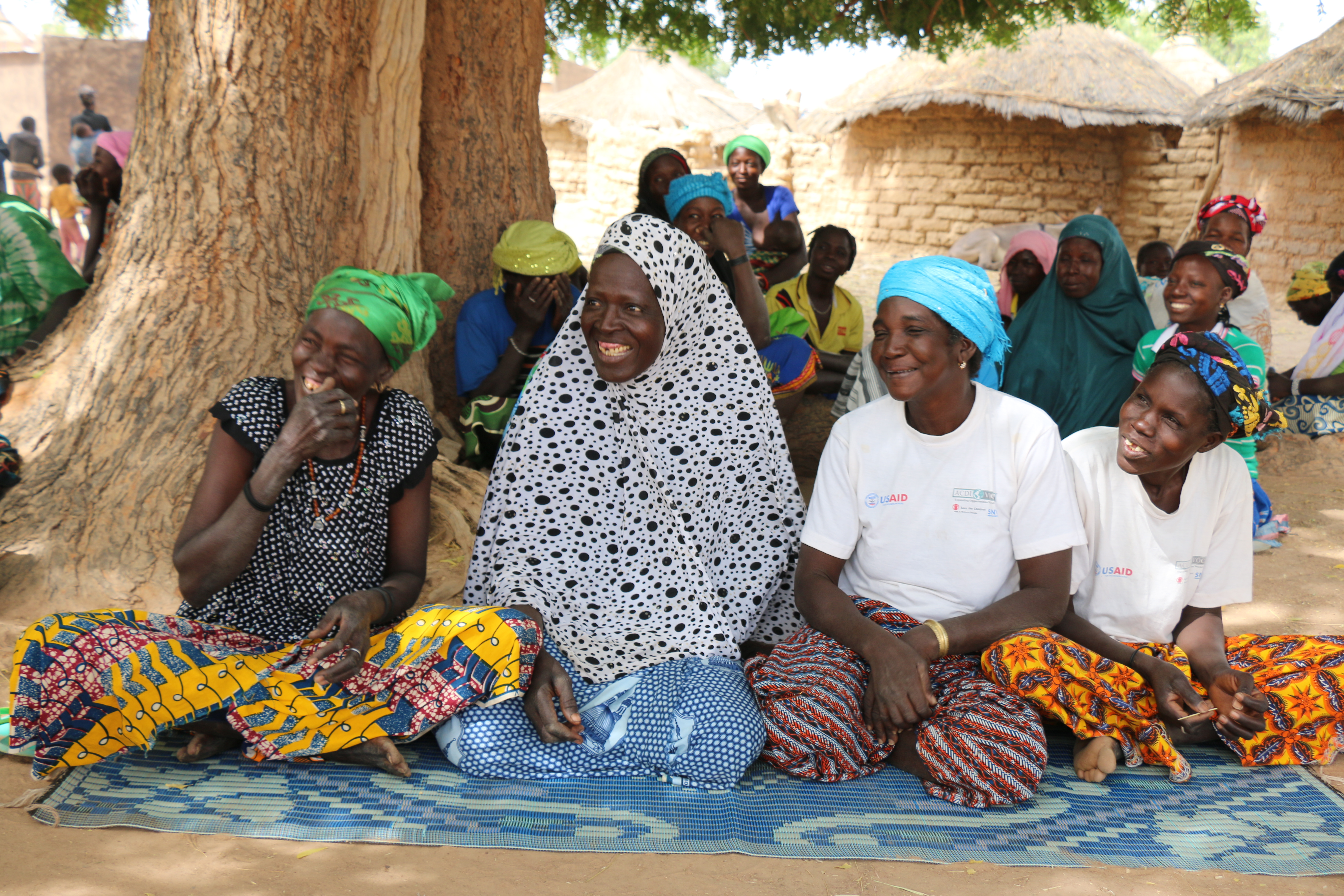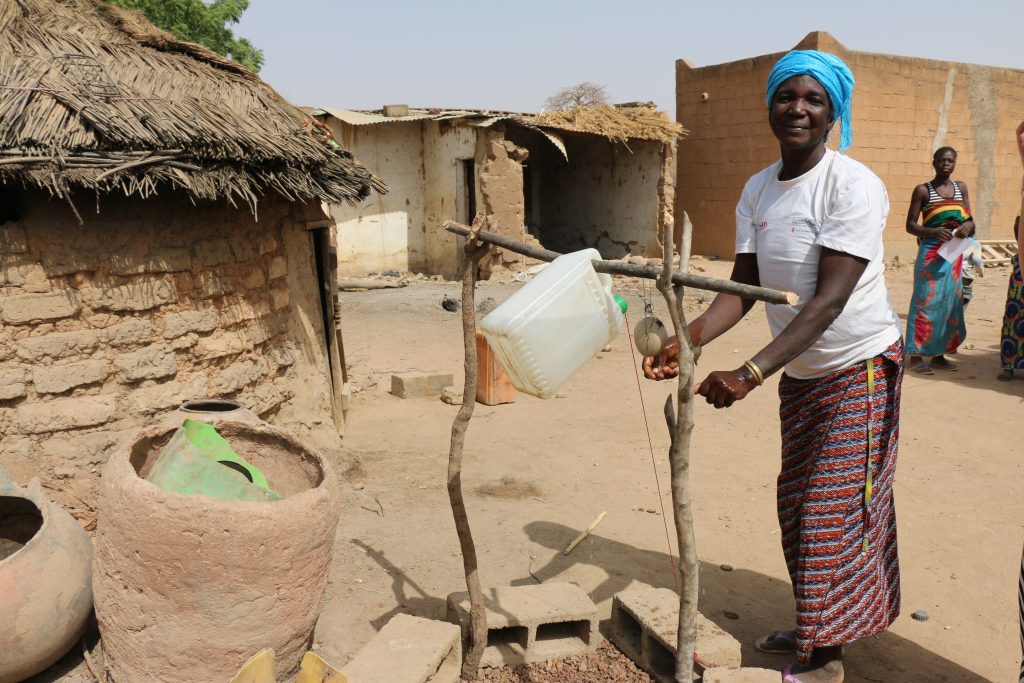
Traditional agricultural practices in the Center-North Region of Burkina Faso have often led to low yields of millet, cowpea, sorghum, and other common crops. Nobila Korogo, a mother of eight, is now a thriving animal breeder, but she remembers a time when life was harder in her village of Ouintokouliga in the Pissila commune. She had little money for basic household needs, like medical care, soap, and protein to feed her children.
Nobila learned about the Victory Against Malnutrition Project (ViM) through her local cowpea producer group. Funded by USAID’s Office of Food for Peace and implemented by ACDI/VOCA, Save the Children, and three local partners, the ViM project is working in Nobila’s community to reduce poverty and food insecurity by improving and diversifying farmers’ incomes and productions, leading to better household health and nutrition.
Nobila joined training sessions with ViM through a women’s care group that ViM started in her village based on the Preventing Malnutrition in Children under 2 Approach (PM2A). Over time, the group started to practice tontine, a traditional village lending scheme, which allowed them to save money and take out small loans for their household and small business needs.
However, these small loans weren’t enough for Nobila. She needed to access larger amounts of credit than was available. Unfortunately, she and many other women lacked access to a formal microfinance institution (MFI).
Through a partnership with an MFI, the Caisse Populaire, in 2015, ViM brought financial agents to Nobila’s village, and villages like hers, to understand the credit needs and offer financing to those receiving technical support under ViM. Nobila’s entrepreneurship and improved production knowledge made her and many other ViM participants credit-worthy clients.

Now that she has access to formal credit from the Caisse Populaire, Nobila has taken out five loans, each one larger than the last, and each paid off early. With her first small loan, Nobila bought a donkey to plow her cowpea field. This, along with new farming practices learned from ViM, helped her produce enough to sell some of her crop and still retain enough for household consumption. Nobila used the extra income earned to pay her children’s school fees. With additional loans, she bought two cows and started raising goats and sheep for added income. She now earns enough to cover unexpected costs, like family medical visits.
“With my financial capacity now, I see life positively. I can face any problem in my family; we eat sufficiently and my children go to school.” – Nobila Korogo, a Victory Against Malnutrition Project participant
With the support of ViM, the Caisse Populaire has issued 2,410 loans at a 100 percent repayment rate in just nine months. MFIs like the Caisse Populaire see the value in giving credit to rural clients, especially women, and plan to open a new office in the Barsalogho commune to expand their client base in the ViM project area.
Nobila is a village star who is inspiring others to find ways of improving their livelihoods. Women in her care group who received credit said they became less dependent on their husbands for money and communicated better with their families. Their living conditions also improved, as many built successful farming enterprises and future income-generating activities, while also putting money aside for emergencies.
ViM now works with 200 villages in the Sanmatenga province, home to the country’s highest childhood malnutrition rates. The project is sustainably reducing poverty, improving food security, and building resilience in Nobila’s village and many others.








